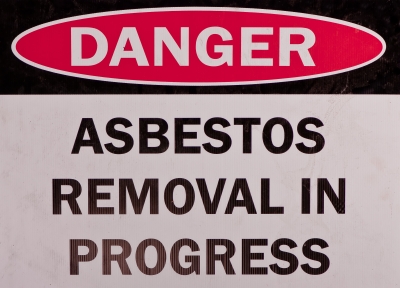The Illinois Supreme Court recently barred a plaintiff’s mesothelioma claim against an employer based on the time limitations set forth in the Workers’ Compensation Act and the Workers’ Occupational Diseases Act. The claim was barred despite the fact that the plaintiff was not diagnosed with the disease until 16 years after the expiration of those time limits. In Folta v. Ferro Engineering, the plaintiff was exposed to products containing asbestos as a result of his job responsibilities as a shipping clerk and product tester for his employer, Ferro Engineering. Forty-one years later, plaintiff was diagnosed with mesothelioma, a disease associated with asbestos exposure. One month later, he sued fifteen defendants, including his employer, to recover damages for the disease.
The issue was whether the plaintiff’s claim was barred by Illinois requirements that applications for workers’ compensation relating to asbestos exposure must be filed within twenty-five years after the employee was exposed to asbestos-containing products. The practical problem was that, because of the latency of the plaintiff’s disease, the Illinois requirements precluded the plaintiff from recovering compensation benefits or even filing an application for benefits because the disease was not diagnosed until well after the limitation periods expired.
The court held that the plaintiff’s claim against the employer was barred because the plain language of the statutes provided an absolute bar on the right to bring a claim after twenty-five years. The court found that the limitations statutes were “statutes of repose”, and the purpose of those statutes was to terminate the possibility of liability after a defined period of time. The court also found that the plaintiff’s lack of fault for not filing a claim sooner due to the nature of the disease is not a relevant consideration: “Although the statute barred [plaintiff’s] claim before it had yet accrued, that is the purpose of such a provision.”
The court stated that it was not its duty to address the “harsh result” in this case, but put the responsibility for changing the statutes squarely on the shoulders of Illinois General Assembly: “Nevertheless, ultimately, whether a different balance should be struck under the acts given the nature of the injury and the current medical knowledge about asbestos exposure is a question more appropriately addressed to the legislature. It is the province of the legislature to draw the appropriate balance. It is not our role to inject a compromise, but, rather, to interpret the acts as written.”
This is a big win for manufactures and other companies that face asbestos-related lawsuits. Had the Supreme Court found in favor of the plaintiff in this case, this would have resulted in a massive expansion of the time period in which employers could face asbestos-related workers’ compensation claims. This case does not impact claims against asbestos defendants that are not employers of plaintiffs, however, and it remains to be seen whether the Illinois General Assembly will actually change the statutes to allow plaintiffs to sue employers in the fashion that the plaintiff wanted to do in this case. Given the political turmoil currently in Illinois government, it is unlikely that the General Assembly will make such a change at this time or in the near future.
***
Stay tuned to the Illinois Environmental Law Blog for more news and developments. To subscribe to this blog and sign up for a free newsletter, please type in your e-mail address in the box located above. To set up a free initial consultation to discuss your legal matter, please contact Chicago environmental attorney Dave Scriven-Young at (312) 239-9722 or dscriven-young@pecklaw.com.








